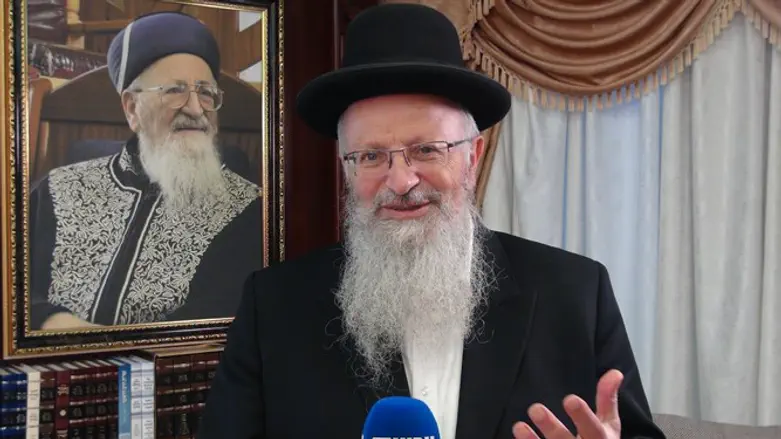
After reading the Torah we recite the blessing "and He planted eternal life within us".
The Gemara says that prayer relates to temporary life, while Torah relates to eternal life. Prayer is concerned with matters of a specific period of time: in the winter, we pray for rain, and in summer for dew. On Passover we will mention the departure from Egypt and in Succot we describe the clouds of glory.
On the other hand, the Torah is considered "eternal life". I once heard my father and teacher Abba ztz"l say that one can study the laws of Sukkot on Passover and the laws of Passover on Sukkot, and both will be considered magnificent Torah study. But if you eat Matza on Sukkot or sit in a Sukkah on Passover, you have not fulfilled either mitzvah.
Another meaning to the words "eternal life" is that the Torah is designed to bring blessing to all of reality. Similarly, our forefather Avraham was told that he should make aliyah to Eretz Israel, and in so doing merit "in thee shall all the families of the earth be blessed.' " (Genesis 12, 3). And when God commands that Avraham perform circumcision, He reiterates this national role: "as for Me, behold, My covenant is with thee, and thou shalt be the father of a multitude of nations. "[Genesis 17, 4]
This idea is restated with the promise of Eretz Israel. God swears again to Abraham after the binding on Mount Moriah, "and in thy progeny shall all the nations of the earth be blessed; because thou hast hearkened to My voice" (Genesis 22,18). He later tells Isaac," and I will establish the oath which I swore unto Abraham thy father” (Genesis 26,3). And again, God tells Jacob in the same place, ”and thy progeny shall be as the dust of the earth, and thou shall spread abroad to the west, and to the east, and to the north, and to the south. And in thee shall all the families of the earth be blessed, and in thy progeny." (Genesis 28,14).
In all of these quotes we see that our power to impact the entire world is contingent upon Mount Moriah and Eretz Israel. Starting with Abraham, to whom God said that in order to influence the world, he had to go to the Land of Canaan, and ending with God’s words to Jacob.
The international influence of the People of Israel depends on their being in the Land of Israel. Thus, only upon entering Eretz Yisrael can all of the Torah be written on a stone in the 70 languages. And this is also the reason why the entire psalm of "Hodu", which is said at the beginning of all prayers, links the role of "declare to the peoples" and "tell the nations" to the covenant that God made with our Fathers about Eretz Israel. From this we can understand the enormous international significance of the inheritance of the Land of Israel by the People of Israel.